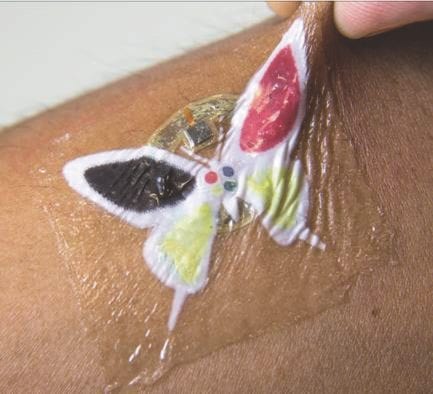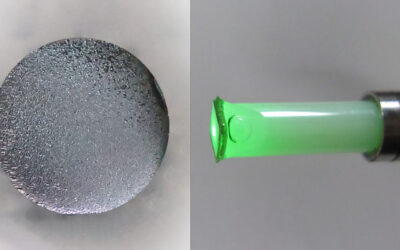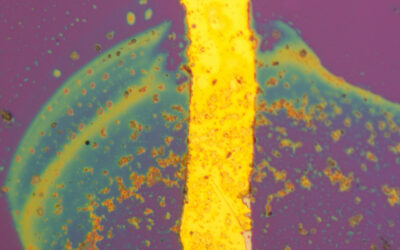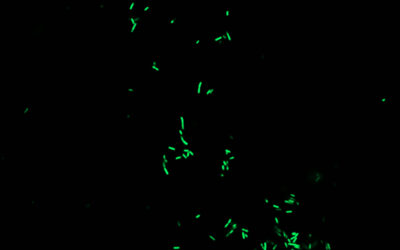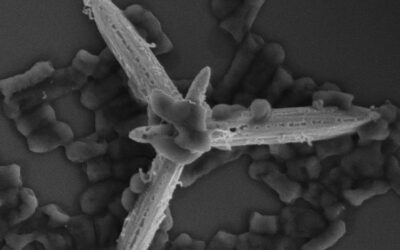For the human body, UV radiation can have a positive effect (mental wellness, vitamin D synthesis) as well as a negative effect (erythema, melanoma). Above all, skin cancer represents one of the most serious negative effects and is a major health concern for people around the world. Therefore, it is important for human being to have a device that creates, in a convenient manner, awareness of the UV dose he or she has been exposed to.
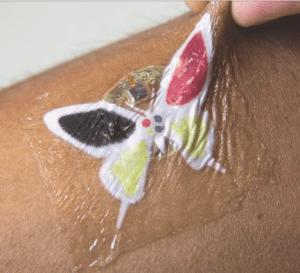
Multimodal, colorimetric epidermal device with capabilities in UV and temperature sensing and in wireless operation via near field communication (NFC) electronics.
John Rogers (Northwestern University, USA) and his team report a colorimetric epidermal UV dosimeter and temperature sensor with integrated Near Field Communication (NFC) capabilities. Subsequently, absorption of UV radiation generates an activated species that changes the colour of a dye, for example from red to green. The researchers have embedded the colorimetric system into a polydimethyl siloxane (PDMS) matrix material, which enables the device to be worn directly on the skin. The chemistry was tailored to be epidermal friendly and the overall sensitivity as well as spectral responsivity were optimised using stretchable optical thin-film filters. With a protective coating of poly(ethylene-vinylacetate) on top, finally, resulted in a platform that has a thin geometry (<20 µm), low mass (<10 mg) and a small overall size (16 mm diameter). In order to freely design the shape of the device, the team have used screen printing and lamination techniques. Furthermore, NFC functionalities were added to enable remote read out by users with, for example, a smartphone.
Development of similar approaches in stretchable material design may allow for sensing of additional types of environmental exposure, such as pollution, high energy radiation, chemical/biological agents, and others.

